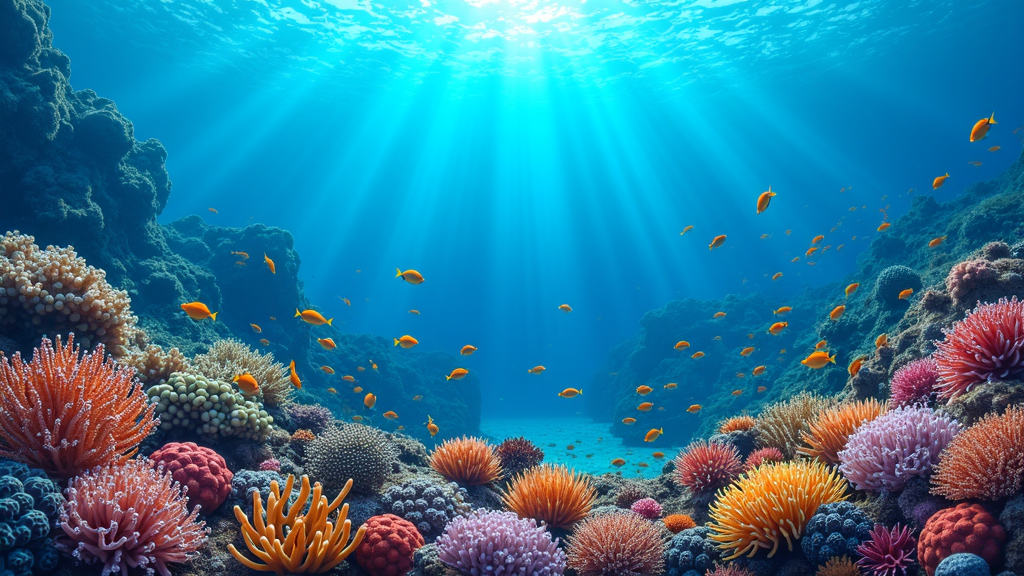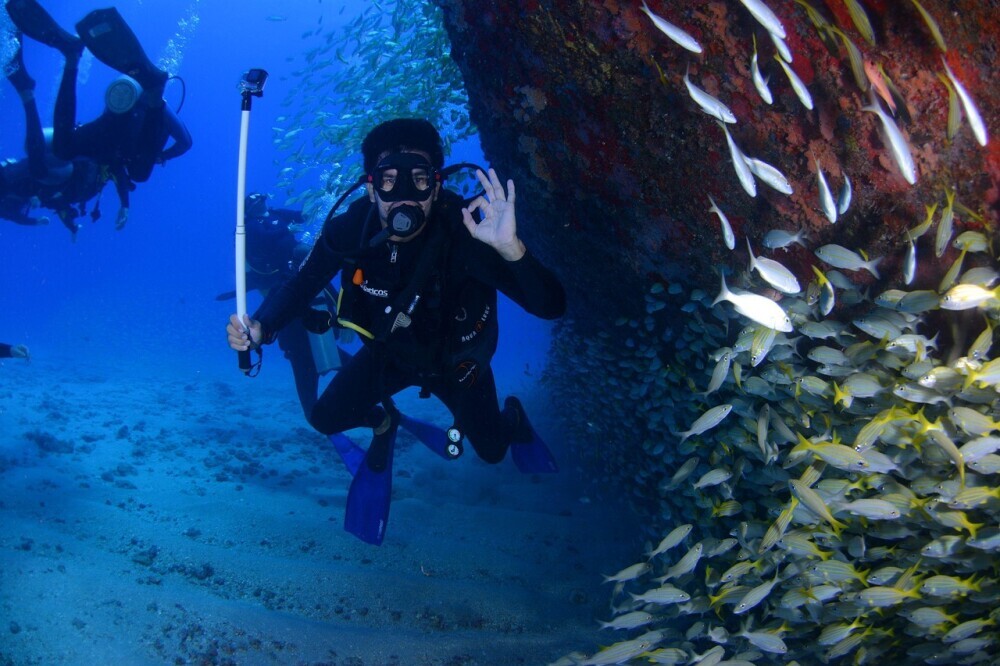Scuba diving adventures offer some of the most eye-catching experiences found anywhere on earth or below the waves. For anyone craving a sense of discovery, few activities get you closer to hidden wonders than heading beneath the ocean’s surface. If you’re curious about exploring underwater worlds or planning a first scuba trip, here are tips and ideas to get into the sport and make each dive genuinely unforgettable.

Stumble Upon the Magic of Scuba Diving
Growing up, I was endlessly fascinated by ocean documentaries, but nothing really prepared me for that first breath underwater and the absolute thrill of seeing coral cities, darting fish, and blue water drop-offs all around. The real beauty of scuba diving is how accessible it’s become lately, with plenty of beginner-friendly choices scattered around the world. The diving community keeps growing fast, with more than six million certified divers out there and new sites being checked out every year.
People start diving for their own reasons. Some want stunning reefs, a few have famous shipwrecks on their bucket list, and others dream of floating quietly with massive sea turtles or playful dolphins. Whatever sparks your interest, learning to dive opens up vacations like no other. It’s an adventure, a peaceful escape, and a nature connection all rolled up into one awesome activity.
Starting Your Underwater Adventure: What You Need to Know
Getting started with scuba isn’t complicated, but a few basics matter before you pack that mask and fins. Most top dive destinations offer solid schools with entry-level courses such as the PADI Open Water Diver certification. This course breaks down everything from putting gear together to managing buoyancy and using underwater hand signals.
Here are some must-knows for any new diver:
- Certification: You’ll need to get certified before doing dives on your own. Training usually mixes online study with real practice in pools and then out in the ocean.
- Gear: Most folks rent equipment from dive shops first, but it pays to buy your own mask, snorkel, and fins. Having gear that fits right can make each dive more comfortable and fun.
- Diving Buddy: Always have a buddy. Diving together boosts safety, solves problems, and leads to great memories.
- Health: Scuba asks for decent physical fitness, plus paying attention to ear equalization, hydration, and leaving time between dives at the surface.
Many spots worldwide cater to newcomers, so you’ll be in safe hands from day one. Safety, comfort, and clear communication top the list for a good first experience.
The Ultimate Bucket List Dive Destinations
Some places are just legendary among divers for good reason. Whether you’re hunting for wild animal encounters, vivid reefscapes, or haunting shipwrecks, there’s a destination for every taste and skill set.

Great Barrier Reef, Australia
Making it to the Great Barrier Reef felt like a dream come true. This massive network of coral comes alive with a crazy variety of fish, turtles, rays, and eye-catching soft coral. The best news? There are shallow lagoons ideal for beginners, plus drop-offs and pass-throughs for folks ready to take their skills up a notch.
Blue Hole, Belize
The Blue Hole stands out as a true bucket list adventure. When you descend into the deep blue, you’ll spot stalactites and huge groupers gliding by. Even new divers can stick to snorkeling above this natural sinkhole, but if you’ve got experience, you can check out the eerie cave below the surface.
Ras Mohammed, Egypt
This area at the tip of the Sinai Peninsula is famous for warm, clear waters and jawdropping wall dives. The nearby Thistlegorm shipwreck, loaded with World War II gear, feels like underwater time travel. Whether you stay shallow or go deep, get ready for schools of colorful fish and untouched coral gardens.
Bonaire, Caribbean Netherlands
Bonaire remains a favorite for shore diving. Reefs are so close to the beaches, you can toss on your gear and walk right in. If you’re a little inexperienced, these calm, currentfree conditions make for a playful, relaxing start to the underwater world—no boat trip needed.
Silfra Fissure, Iceland
This unique site lets you float between the North American and Eurasian tectonic plates, in clear cold water where visibility often stretches beyond 100 meters. It’s famous for wild geology and the unforgettable experience of drifting between two continents.
Smart Tips for Making the Most of Every Dive
A little planning takes a dive from good to next-level cool. In my own adventures, these tips helped make the biggest difference:
- Dive Planning: Know your site, check out your maximum depth, and review conditions. Go over routes and highlights with your guide. Don’t hesitate to ask questions during briefings.
- Equipment Check: Always double-check your setup before heading in. Nothing ruins the vibe like a leaky mask or loose regulator once you’re twenty feet underwater.
- Buddy Communication: Run through hand signals and talk about emergencies with your buddy before diving in.
- Equalization: Start equalizing your ears before descending and repeat often to avoid any pain.
- Respect Marine Life: Get close for a view, but don’t touch. Marine creatures and reefs need us to stay respectful to thrive.
- Record the Moment: Underwater cameras like GoPros turn adventures into lasting memories. Beginners should practice staying still for photos and avoid stirring up the sand.
Challenges & How to Deal with Them
Diving isn’t always perfect, but a bit of preparation helps smooth out most hiccups:
- Water Temperature: Colder sites require thick wetsuits or even drysuits. Staying warm extends bottom time and enjoyment.
- Currents: Some locations have strong flows, so guides pick easygoing sites for newcomers. Fins that fit well and solid fitness keep you moving safely and comfortably.
- Visibility: This can change fast—bad weather or tides might stir up sediment. Stay close to your buddy and move slow if it gets cloudy.
- Fear or Nerves: Feeling nervous is normal. Breathe slower, use signals to pause, and remember you’re never truly alone beneath the waves.
Staying Safe & Relaxed Underwater
Confidence comes with practice. The more you dive, the more you master buoyancy, watch your air, and relax in the moment. Trust your gut—if equipment isn’t right or conditions seem off, it’s totally OK to sit one out. Another adventure is waiting nearby.
Next-Level Cool Adventures and Unique Dive Experiences
Once you’re at ease with the basics, new types of diving will set your passion free. Night dives with UV flashlights make reefs glow, while wreck dives let you track down sunken history and drift dives pull you along underwater currents like magic. Seeking more excitement? Head to places with manta ray gatherings, whale shark hotspots, or kelp forests where sea lions zoom by like furry torpedoes.
- Night Diving: Hovering above bioluminescent plankton and sleeping parrotfish gives a totally new perspective on reefs you think you know.
- Wreck Diving: Checking out old sunken ships is a beautiful, spine-tingling experience with surprises every time you go.
- Wildlife Safaris: Whether it’s the sardine run in South Africa or swimming among cheeky seals in Galapagos, certain animals only show up under special seasonal conditions.
Ask dive shops about specialty dives—they’ll clue you in on rare creatures and unique events throughout the year. Don’t forget to check in about local diving festivals, too!
Common Questions About Scuba Diving Adventures
I get these questions all the time from people considering scuba or prepping for their first adventure:
Question: Is scuba diving safe for beginners?
Answer: Scuba diving is built to be safe as long as you stick to what you learned, listen to instructors, and follow beginner safety rules. Legit dive shops never push you past your comfort zone.
Question: How can I manage equalizing my ears during a dive?
Answer: Equalize early and often, usually by gently pinching your nose and blowing, or wiggling your jaw. If it hurts, pause and try again before going deeper.
Question: What’s the best way to pick a beginnerfriendly dive spot?
Answer: Find dive areas with calm water, good visibility, and solid dive operators that get good reviews from other new divers. Some great beginner locations are Bonaire, the Bahamas, and various spots in Thailand.
Why Scuba Diving Adventures Are Worth Every Second
Scuba offers a glimpse into hidden worlds that most never get to see. From multicolored reefs to secret wrecks and surprise animal encounters, every single dive holds a new memory. After years underwater, I’m still amazed by the stuff I stumble upon, the new friends I meet, and the funny stories—even when things don’t go perfectly. It’s about curiosity, respect, and a true sense of amazement. If you’re thinking of taking the plunge, know that unforgettable underwater adventures are just waiting for you below the surface.
Add scuba to your list of must-try adventures—you never know what awaits in the blue! Here’s a little transparency – Our website contains affiliate links. This means that if you click and make a purchase, we may receive a small commission. Don’t worry, there’s no extra cost to you. It’s a simple way you can support our mission to bring you quality travel content.
Here’s a little transparency – Our website contains affiliate links. This means that if you click and make a purchase, we may receive a small commission. Don’t worry, there’s no extra cost to you. It’s a simple way you can support our mission to bring you quality travel content.
Want to start your own online business with something you’re passionate about?
https://www.wealthyaffiliate.com?a_aid=55353b3f
